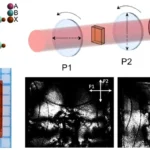Quantum computing represents a paradigm shift in computational power, promising to revolutionize industries and solve complex problems beyond the capabilities of classical computers. This article provides a comprehensive analysis of the Quantum Computing market, exploring key trends, market dynamics, and challenges, and offering insights into the future outlook of this transformative technology.
Market Overview
Quantum computing harnesses the principles of quantum mechanics to perform computations utilizing quantum bits or qubits. These qubits can exist in multiple states simultaneously, helping quantum computers process vast amounts of data and solve highly complex problems exponentially faster than classical computers. The global Quantum Computing market is rapidly growing, driven by advancements in quantum hardware, software, and algorithms.
Key Market Trends
Several influential trends are shaping the Quantum Computing market, indicating the transformative potential of this emerging technology:
Advancements in Quantum Hardware
The market is experiencing significant advancements in quantum hardware, including superconducting qubits, trapped ions, and photonic qubits. Quantum hardware manufacturers are making strides in increasing qubit coherence times, reducing error rates, and scaling up quantum processors, paving the way for practical quantum computing applications.
Development of Quantum Software and Algorithms
Parallel to hardware advancements, there is a growing focus on developing quantum software and algorithms optimized for quantum hardware architectures. Quantum software companies are creating programming frameworks, quantum compilers, and quantum simulators to enable developers to design and execute quantum algorithms effectively.
Rise of Quantum Cloud Computing
Quantum cloud computing platforms are emerging as a key enabler of quantum technology accessibility and scalability. These platforms allow researchers, developers, and enterprises to access quantum hardware and software resources via the cloud, accelerating experimentation, prototyping, and deployment of quantum applications.
Increased Investment and Collaboration
There is a surge in investment and collaboration within the Quantum Computing ecosystem, as governments, research institutions, and industry players allocate significant resources to advance quantum technology. Public-private partnerships, research consortia, and strategic collaborations are driving innovation and accelerating the commercialization of quantum computing.
Challenges
Despite the promising trends, the Quantum Computing market faces several challenges that impede its widespread adoption and commercialization:
Quantum Error Correction and Fault Tolerance
Quantum computers are susceptible to errors caused by environmental noise and decoherence. Overcoming these errors through quantum error correction and fault-tolerant techniques remains a significant challenge in realizing scalable and reliable quantum computing systems.
Scalability and Quantum Volume
Achieving quantum scalability, wherein the number of qubits and quantum gates increases while maintaining low error rates, is essential for realizing quantum computing’s full potential. Improving quantum volume—a measure of qubit quality and connectivity—is crucial for demonstrating practical quantum advantage in real-world applications.
Talent and Workforce Development
The shortage of skilled professionals with expertise in quantum computing poses a barrier to the growth of the Quantum Computing market. Addressing this talent gap requires investments in education, training programs, and collaborative initiatives to nurture the next generation of quantum scientists, engineers, and developers.
Future Outlook
The Quantum Computing market holds several key developments for the future, shaping the trajectory of quantum technology and its impact on various industries:
Commercialization of Quantum Applications
The commercialization of quantum applications is expected to accelerate, driven by advancements in quantum hardware, software, and algorithm development. Industries such as finance, healthcare, logistics, and materials science will leverage quantum computing to tackle optimization, simulation, and cryptography challenges.
Quantum Supremacy and Demonstrations
Quantum computing platforms are poised to achieve milestones such as quantum supremacy—where quantum computers outperform classical computers in specific tasks—and demonstrate quantum advantage in practical applications. These achievements will validate the potential of quantum computing and spur further investment and adoption.
Quantum-Secure Cryptography and Cybersecurity
The rise of quantum computing necessitates developing quantum-secure cryptography and cybersecurity solutions to protect sensitive information from quantum attacks. Research efforts in quantum-resistant encryption and cryptographic protocols will be essential to safeguarding digital infrastructure in the quantum era.
Conclusion
Quantum computing represents a paradigm shift in computational power, potentially revolutionizing industries, driving innovation, and solving some of the world’s most challenging problems. As the Quantum Computing market continues to evolve, addressing hardware scalability, error correction, and talent development challenges will be crucial. The future outlook is optimistic, with quantum technology poised to unlock new frontiers in science, engineering, and computing, ushering in a new era of discovery and innovation. Quantum computing is not just the future of computing; it is the future of humanity’s quest for knowledge and progress.





